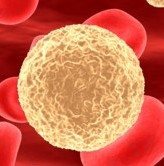Mesothelioma and Virotherapy
A recently published study* suggests that virotherapy may be a viable treatment option for mesothelioma, as well as for other cancers. Virotherapy is the use of biotechnology to convert viruses into cancer-fighting agents by reprogramming viruses to only attack cancerous cells
An agent of change for patients with “no real treatment alternatives”
“Normally, viruses replicate to increase their number, and by virtue of that process, healthy cells are killed,” explains David T. Curiel, MD, PhD, director of the Division of Human Gene Therapy at the University of Alabama at Birmingham. “Virotherapy is about engineering viruses so that they replicate only in tumor cells – and kill only tumor cells.”
In order to engineer an effective virus, scientists must first understand the molecular workings of the cancer. An adenovirus-based virotherapy agent is engineered by incorporating a tumor specific promoter (TSP) into virus genes. The TSP restricts the expression of certain genes and viral replication in tumor cells, while sparing in normal cells.
“Not much is known about the biology of mesothelioma,” Curiel says, so it was a significant step forward when his team – led by Zeng B. Zhu, MD – identified a new TSP called survivin and confirmed its relationship to mesothelioma with laboratory and animal studies. (All studies were supported by the Mesothelioma Applied Research Foundation.)
This discovery set the stage for the team to design a virotherapy agent effective against mesothelioma – a disease that has not seen an improvement in outcomes resulting from new therapies in 20 years, Curiel says – and the researchers have engineered a virus that replicates in mesothelioma cells and spares normal cells.
But while the scientific community is starting to make strides toward treating patients with mesothelioma – “a population with no real treatment alternatives,” Curiel says – and people at high risk for developing the disease, Curiel warns that “simply because we’re beginning to understand mesothelioma on this level, we shouldn’t expect to see a downtick in the number of cases.”
That’s because of mesothelioma’s long latency period. Although the disease is caused primarily by asbestos exposure – and asbestos has been disappearing in this country for a long time – mesothelioma’s life cycle and predictable demographic are such that we’ll continue to see an increase in cases for years, making the disease an ideal target for virotherapy, says Curiel.
“Mesothelioma is typically localized in the chest cavity, and virotherapy can optimize our ability to target and contain it,” he says. “We can concentrate the virus in the area where it will be most effective – and cause minimal damage to healthy cells.”
What’s next?
In addition to their virotherapy work with mesothelioma, University of Alabama researchers also have adapted an early diagnostic test for the disease, which will be the subject of future work.
There is evidence that virotherapy can be effective in treating other types of cancer, as well, Curiel says. Last month the University of Alabama at Birmingham got FDA approval to begin investigating the use of virotherapy as a treatment for ovarian cancer, and a national clinical trial will begin in May.
Alabama researchers are also collaborating with scientists at MD Anderson Cancer Center and the Free University of Amsterdam to investigate the efficacy of virotherapy in treating glioma, an aggressive form of brain cancer.
So stay tuned. And speak with your doctor to learn more about virotherapy and cancer.
* Zhu et al, Targeting Mesothelioma Using an Infectivity Enhanced Survivin-Conditionally Replicative Adenoviruses. J Thorac Oncol. 2006 Sep; 1(7):701-711.






